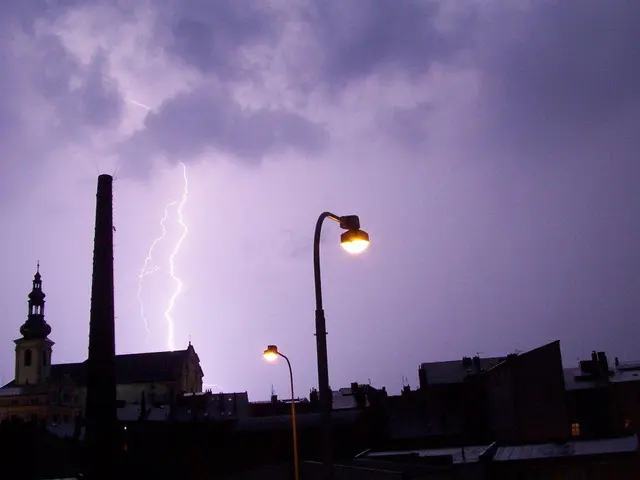Military Official's Impulsive Verbal Aggression by a Pakistani General
In the complex and delicate nuclear security landscape of South Asia, concerns are mounting over Pakistan's expanding tactical and strategic nuclear arsenal, which remains largely unchecked and without international oversight [1][4]. With no formal "No First Use" policy, the region is left on edge as Pakistan's nuclear arsenal continues to grow.
Recent nuclear threats by Pakistan's army chief, Field Marshal Asim Munir, have added to the regional anxiety [1]. In a statement made in August 2025, Munir declared that Pakistan would "take half the world down" if faced with an existential threat [1]. This rhetoric, condemned by India as "nuclear sabre-rattling", has heightened regional tension and underscores Pakistan's aggressive deterrence stance [1][5].
Munir's threats are seen by analysts as part of a broader strategic messaging effort to underpin Pakistan’s deterrence posture and complicate India’s conventional military responses, reinforcing Pakistan’s nuclear doctrine of "full-spectrum deterrence" [5]. However, explicit evidence of poor nuclear weapon security or unauthorized actions by generals is not publicly available [3][5].
India's defence officials and political leaders have repeatedly expressed doubts about Pakistan's nuclear arsenal and have called for it to be put under international supervision, citing Pakistan as a "rogue and irresponsible nation" prone to nuclear threats [2]. Concerns about the safety and security of Pakistan's nuclear weapons stem partly from the ambiguous command-and-control environment and Pakistan’s perceived willingness to use or threaten nuclear weapons during escalations.
While the nuclear command in Pakistan remains under military control, experts worry about the risk factors arising from Pakistan’s internal security challenges, extremist influences, and state-sponsored terrorism, which add layers of complexity to the safe management of nuclear arms [3][5].
As the situation in South Asia continues to evolve, the international community must remain vigilant and work towards ensuring the safety and security of all nuclear weapons in the region. The potential threat posed by Pakistan's nuclear arsenal falling into the wrong hands, such as terrorists encouraged by the Army, is a dangerous one that cannot be ignored [3].
In this complex and delicate nuclear security challenge, it is crucial that all parties involved prioritise diplomacy and dialogue to de-escalate tensions and work towards a more stable and secure future for all nations in the region.
The escalation in war-and-conflicts rhetoric, as displayed by Pakistan's army chief, Field Marshal Asim Munir, has significantly contributed to the general-news headlines and the political landscape in South Asia [1]. The ongoing crime-and-justice debate between India and Pakistan revolves around concerns about Pakistan's nuclear arsenal and the need for international oversight to ensure its safety and security [2].








